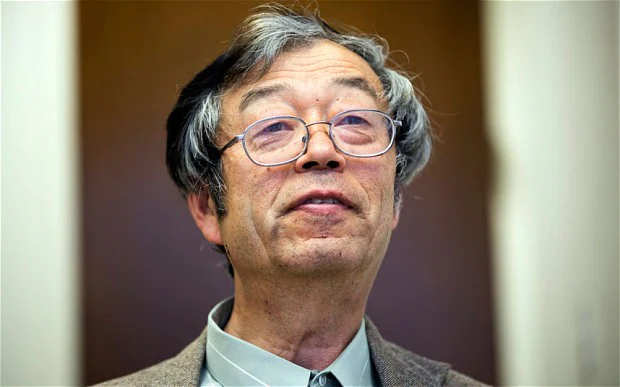Who is the father of crypto? The world of finance and technology was forever transformed in 2009 with the launch of Bitcoin, the first decentralized digital currency. This groundbreaking innovation ushered in a new era of peer-to-peer value transfer, eliminating the need for centralized authorities such as banks or governments. The person, or group of people, credited with creating Bitcoin is known by the pseudonym Satoshi Nakamoto. Widely recognized as the “Father of Cryptocurrency,” Nakamoto’s identity remains shrouded in mystery. Still, their vision and contribution laid the foundation for the multi-trillion-dollar cryptocurrency industry we know today.
Who is Satoshi Nakamoto?
Why

Satoshi Nakamoto is the pseudonymous individual (or possibly a group) credited with the invention of Bitcoin. In October 2008, Nakamoto published a white paper titled “Bitcoin: A Peer-to-Peer Electronic Cash System.” This paper describes how people could send money directly to one another without using banks, enabled by cryptography and a distributed ledger called blockchain.
On January 3, 2009, Nakamoto mined the genesis block, the first block of the Bitcoin blockchain, marking the birth of cryptocurrency. The block contained a message referencing the financial crisis of 2008:
“Chancellor on verge of second bank bailout,” The Times, 03/Jan/2009.
This was not only a timestamp but also a political statement about the instability of centralized banking systems.
Satoshi Nakamoto is Called the Father of Cryptocurrency
Although digital currency experiments existed before Bitcoin (like DigiCash, Hashcash, and b-money), none solved the double-spending problem in a decentralized way. Double-spending refers to the risk of spending the same digital currency more than once. Traditional digital systems rely on central authorities to prevent this, but Satoshi’s genius was designing a trustless, decentralized solution using blockchain technology.
For this logic, Nakamoto is called the “Father of Cryptocurrency”—his creation fed the architecture that made decentralized digital money likely, sparking the entire crypto movement.
The Core Vision of Satoshi Nakamoto
Satoshi’s vision went beyond just creating digital money. His work was rooted in principles of freedom, decentralization, and empowerment:
- Financial Independence: Allowing individuals to control their own money without reliance on banks or governments.
- Decentralization: Removing central authorities and relying instead on a distributed network of computers.
- Transparency and Security: Using blockchain, where every transaction is recorded permanently and openly, making fraud difficult.
- Scarcity: Designing Bitcoin with a maximum supply of 21 million coins, imitating digital gold and protecting against inflation.
The Technology Behind Bitcoin

To understand why Nakamoto’s contribution was revolutionary, it’s important to know the technologies he combined:
- Blockchain: A public ledger of transactions maintained by a decentralized network.
- Proof of Work (PoW): A consensus mechanism requiring participants (miners) to solve complex mathematical puzzles to validate transactions.
- Cryptographic Keys: Private and public key pairs allow secure ownership and transfer of coins.
- Decentralized Peer-to-Peer Network: Nodes communicate directly, verifying transactions without intermediaries.
These innovations created a trustless system, meaning people don’t need to trust a bank or authority—they only need to trust the mathematics and network protocols.
Mystery of Nakamoto’s Identity
Despite Bitcoin’s success, the identity of Satoshi Nakamoto remains one of the greatest mysteries in technology. He disappeared from public communication in 2011, leaving the project in the hands of other developers.
- Hal Finney: A legendary cryptographer and one of the first people to receive Bitcoin from Satoshi.
- Nick Szabo: Creator of “Bit Gold,” an early digital money concept similar to Bitcoin.
- Craig Wright: An Australian computer scientist who controversially claims to be Nakamoto, though the crypto community disputes this.
Regardless of speculation, Nakamoto’s anonymity reinforces the idea that Bitcoin is bigger than one individual. It belongs to everyone.
Satoshi’s Wealth
In the early days, Nakamoto is thought to have mined about a million Bitcoins. At today’s values, this would make him one of the richest people in the world. Interestingly, none of these coins has ever been spent or moved, further deepening the mystery. Some believe Satoshi left the coins untouched as a symbol of commitment to the project’s decentralization.
Legacy of the Father of Cryptocurrency
The influence of Satoshi Nakamoto cannot be overdrawn. His invention has sparked not only the cryptocurrency market but also new fields of technology and finance:
- Cryptocurrency Industry: From Bitcoin emerged thousands of other coins like Ethereum, Litecoin, and Ripple.
- Financial Inclusion: Bitcoin allows unbanked populations around the world to participate in the digital economy.
- New Economic Models: Concepts like decentralized finance (DeFi), non-fungible tokens (NFTs), and decentralized autonomous organizations (DAOs) trace back to Nakamoto’s principles.
- Challenging Traditional Systems: Bitcoin has forced governments, banks, and financial institutions to rethink money, policy, and innovation.
Philosophical and Social Impact
Nakamoto’s work was not just technical—it carried deep social meaning. It emerged right after the 2008 financial crisis, when trust in banks was at an all-time low. By creating Bitcoin, Satoshi empowered ordinary people to resist centralized financial control.
This has sparked debates on:
- Freedom vs. Regulation: Should individuals have the absolute right to transact privately?
- Decentralization vs. Control: Governments prefer control, but cryptocurrencies resist it.
- Inequality and Wealth Distribution: Can Bitcoin reduce or worsen financial inequality?
These philosophical questions continue to shape the global conversation on money and power.
Criticisms and Challenges
- Energy Consumption: Proof-of-Work mining requires significant energy, raising environmental concerns.
- Volatility: The price of Bitcoin fluctuates wildly, making it unreliable as a stable currency.
- Scalability: Bitcoin’s network processes fewer transactions per second compared to centralized payment systems.
Even with these issues, Bitcoin has survived and thrived, proving the resilience of Nakamoto’s invention.
Conclusion
Satoshi Nakamoto, the father of cryptocurrency, revolutionized the world by introducing Bitcoin—a decentralized, secure, and borderless digital currency. His brilliance lay in combining existing technologies into a system that removed the need for trust in central authorities.
Though his identity remains unknown, Nakamoto’s legacy is undeniable. Bitcoin has grown from a niche experiment into a global phenomenon, inspiring innovations far beyond currency. Whether seen as a financial tool, a political statement, or a technological revolution, Bitcoin has cemented Nakamoto as one of the most influential figures of the 21st century.
In the end, perhaps Nakamoto’s anonymity is his greatest gift—ensuring that cryptocurrency belongs not to one person but to the world.

